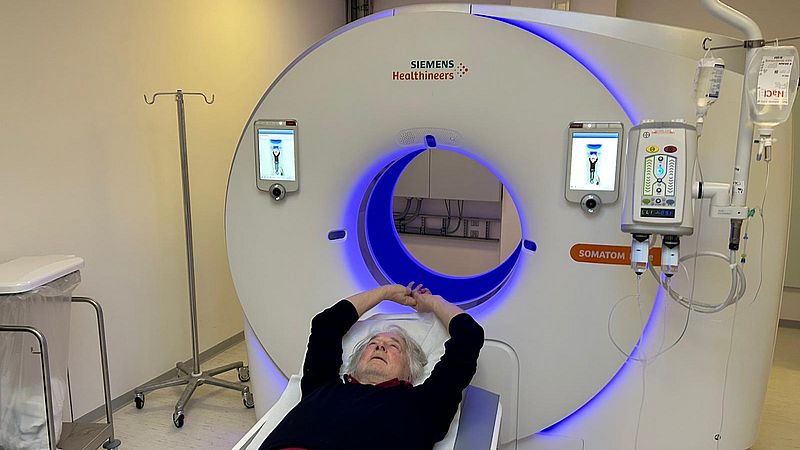Thousands of heavy smokers will be screened for lung cancer for the first time this week. It is an experiment that may lead to a large population study. Lody Crabbendam is also participating: “I like to help science with it.”
Radiologist Dr. Alexander Schmitz of the Antoni van Leeuwenhoek (AVL) in Amsterdam performed a trial last weekend and officially started the study today. “How it often works now is that we don’t discover lung cancer until it has already metastasized.”
Greater chance of survival
“Half of the patients who come here have stage 4 metastatic cancer. Of those people, 3 percent survive, while if we find it earlier, in stage 1, the survival rate is 60 percent. In the very earliest stage, even 80 to 90 percent Schmitz says.
Initially, only people from the Amsterdam region will be eligible for a CT scan at the AVL. 18,000 people received a letter, 6,000 people were selected from it. These are people with a heavy smoking history, between the ages of 60 and 79, such as Lody Crabbendam.
also look at
Condition of lungs
Lody (70) stopped smoking 5 years ago. “I did that for 40 years, half a pack a day,” he says. “I knew it was bad, but everyone was doing it then. You didn’t belong if you didn’t smoke.”
Now he is participating in the pilot of the population screening. “I like to watch the condition of my lungs,” he says. “And I also like to help science with that.”
Reporter Laura Kors accompanied Lody Crabbendam to his CT scan at the Antoni van Leeuwenhoek
Detecting cancer cheaper
“Somehow you get a lot of requests to participate in surveys when you’re over 70,” he laughs. “Lung cancer, cardio and I think Alzheimer’s. In this study I naturally fall into the risk group because of my age and the fact that I have smoked.”
“It makes sense to screen in that group,” explains radiologist Schmitz. At 100 euros per CT scan, it is an expensive investigation, he admits, but whether that is more than the expensive medication that people with metastatic lung cancer take and their low chances of survival, is the question. “Finding cancer earlier is much easier and cheaper than treatment.”
also look at
Continuation
How Schmitz envisions the sequel? “We now have to map out how often we need to see people, how we reach the people we want to reach. How we can use this preventively.”
“I think that the facts that are now on the table give cause for further investigation. That could result in a national population study.”
Lung cancer patient John Franke, who is in his last phase of life, says he might have lived longer with a population study like this


